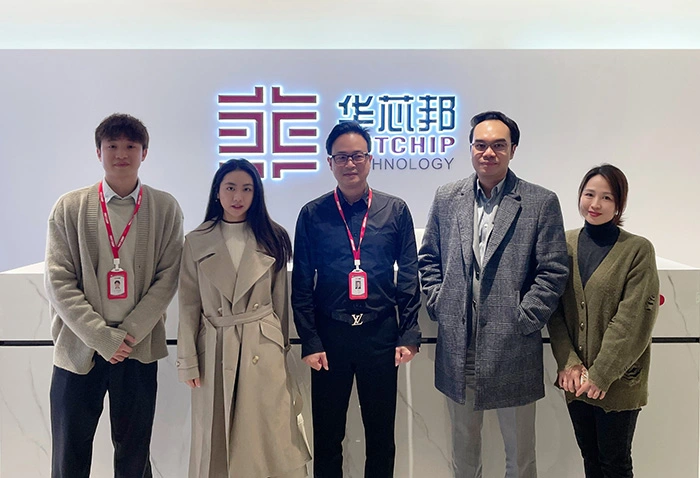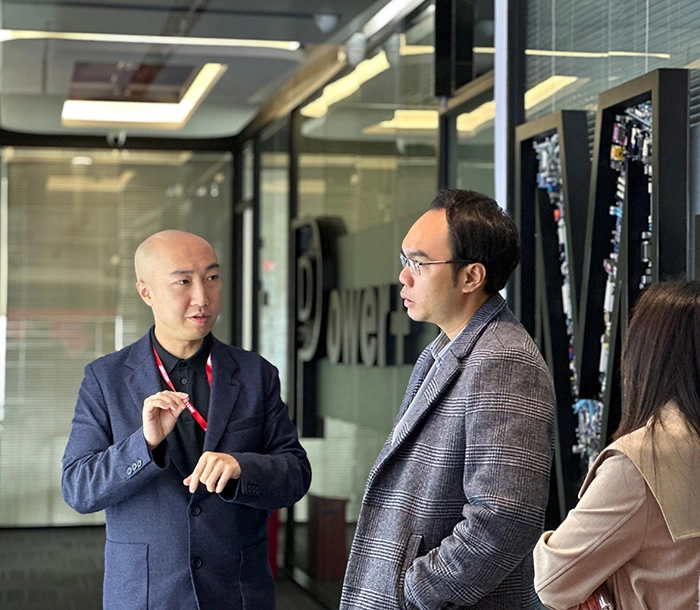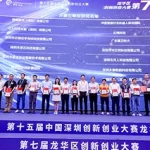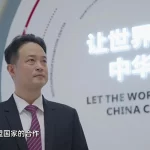Unlocking the era of chip exports, Consul Saif Wan from the Consulate General of Malaysia in Guangzhou visited Hotchip and stepped into the forefront of chip technology.
On the afternoon of January 30, 2024, Mr. SAFWAN NIZAR JOHARI, Acting Consul (Investment) of the Investment Office of the Consulate General of Malaysia in Guangzhou/Deputy Director of the Guangzhou Office of the Malaysian Investment Development Authority (MIDA), and his delegation visited the headquarters of Hotchip Group in Shenzhen Hotchip Technology Co., Ltd. and had a discussion with Mr. Lai Zelian, Chairman of Hotchip Group.

China has always been Malaysia’s largest trading partner. Last year, this Southeast Asian country’s exports to China increased by 9.4%. Faced with escalating tensions with the United States, China has taken action to increase trade with Southeast Asia. The report of the 20th National Congress of the Communist Party of China proposed to adhere to high-level opening up to the outside world and accelerate the construction of a new development pattern with domestic circulation as the mainstay and domestic and international circulations mutually promoting each other. China has close trade relations with Malaysia, with a total bilateral trade volume of 176.8 billion US dollars in 2021, a year-on-year increase of 34.5%. China has been Malaysia’s largest trading partner for 13 consecutive years. Consul Saif Wan introduced the investment environment in Malaysia, the current situation and opportunities of e-commerce cooperation between China and Malaysia, the Malaysian Investment Promotion Agency (MIDA), and the relevant support policies that can be provided for Chinese enterprises.
According to statistics from the Malaysian Ministry of International Trade and Industry (MITI), as the sixth largest semiconductor exporting country, its semiconductors account for 7% of the global trade volume, while the packaging and testing sector accounts for 13%. At the same time, semiconductor product exports account for 62% of Malaysia’s total domestic exports of electronic and electrical products, with a gross domestic product (GDP) of $406.3 billion in 2022, and the semiconductor industry will contribute about a quarter of its revenue. This means that the semiconductor industry plays an irreplaceable role in the sustained development of Malaysia’s economy.
Nowadays, with the rise of AI big models, the computing power requirements of phenomenal AI products like Chat GPT mainly rely on GPU or CPU+FPGA to support. The performance and quantity requirements of GPUs for large models are very high, resulting in a shortage of GPU supply, which is related to the insufficient supply of advanced packaging capacity. Based on its unique geographical location, Southeast Asia is becoming a popular area for chip giants to bet on, while Malaysia is the world’s largest chip packaging and testing center, occupying 40% of the global market share. Nowadays, Malaysia has become one of the main hubs for chip packaging, assembly, and testing.
The Malaysian Investment Promotion Agency (MIDA) has successfully helped numerous Chinese companies settle in Malaysia, including attracting many well-known foreign manufacturing companies and already operating Chinese enterprises. It is worth mentioning that Mr. Sefvan introduced Malaysia’s manufacturing industry, where wafer fabs, integrated circuit design, and semiconductor front-end manufacturing share common areas of convergence with Hotchip Technology’s business. Chinese technology and enterprises are blooming and bearing fruit together in Malaysia, demonstrating enormous potential and development opportunities. It is not surprising that Chinese chip companies choose to go to Malaysia. In order to restrict the development of AI technology in China, the United States has continuously introduced various restrictive measures, including restrictions on the sale and production of cutting-edge chips and manufacturing equipment. According to reports, more and more Chinese semiconductor design companies are choosing to package some high-end chips locally in Malaysia. This includes the packaging work of GPUs, which aims to reduce the risk of the United States expanding sanctions on China’s semiconductor industry.
Mr. Lai Zelian, Chairman of Hotchip Technology, highly recognizes Consul Sefvan’s explanation and admires his profound insight in revealing Malaysia’s potential and development prospects. Mr. Lai Zelian stated that Malaysia has enormous development space and attractiveness, with rapid technological strength and economic development. Therefore, we have formulated a three-stage plan to strive for projects landing in Malaysia to gradually blossom and bear fruit.

Consul Sefvan expressed sincere gratitude for our company’s careful arrangements and warm reception, and highly appreciated and recognized the contributions made by Hotchip to the development and promotion of chip enterprises. At the same time, the association was introduced to Malaysia’s industrial structure and development status, believing that the company’s chip industry happens to be in line with the semiconductor industry category that Malaysia attaches great importance to. It is hoped that more Chinese chip companies can land in Malaysia when expanding outward.



